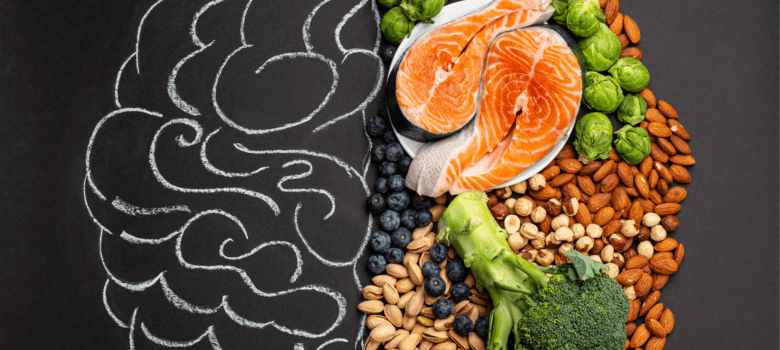

What is the MIND diet?
by Molly Rapozo
Originally published April 11, 2022. Updated September 20,2024.
The MIND Diet Explained
The MIND diet stands for the Mediterranean-DASH Intervention for Neurodegenerative Delay. This diet aims to reduce dementia and the decline in brain health that often occurs as people age. It combines aspects of two well-researched diets, the Mediterranean Diet and Dietary Approaches to Stop Hypertension (DASH).

What food can you eat on the MIND diet?
- Vegetables, with an emphasis on leafy greens
- Berries
- Nuts
- Beans
- Whole grains
- Seafood
- Poultry
What is the link between the diet and the brain?
Diets high in saturated fat, sugar, and refined carbohydrates are associated with worse cognitive function and increased dementia risk. Alternatively, diets characterized by high intakes of vegetables and fruit, limited meat consumption, and the use of olive oil as a primary dietary fat are associated with decreased risk of dementia and other cognitive diseases.
Join our mailing list or make an appointment for our nutrition services:
LIFESTYLE@PACIFICNEURO.ORG
PHONE: 213-344-2037
About the Brain Wellness & Lifestyle Program
The Brain Wellness and Lifestyle program at Pacific Neuroscience Institute® offers personalized guidance to optimize your brain health. Focusing on the 6 pillars, our program addresses diet, exercise, sleep, stress, social interaction, and most importantly memory/cognitive concerns.
Courses blend science-based lifestyle interventions with holistic care, offering comprehensive support for your brain health. Backed by strong research, our methods have been specifically designed to empower individuals to take control of their cognitive well-being. Courses are available in-person or virtual, as well as group or individual sessions.
Useful Links
About the Author

Molly Rapozo
Molly Rapozo, MS, RDN, CD, is a Registered Dietitian Nutritionist specializing in Brain Health Coaching. She provides coaching for clinical research trials at the Pacific Brain Health Center at Pacific Neuroscience Institute, where she uses a personalized list of recommendations to coach participants in optimizing wellness and avoiding disease. Molly enjoys teaching people how to make good nutrition easy to do and delicious to eat. She also provides support with sleep, stress management and exercise.
Last updated: October 7th, 2024